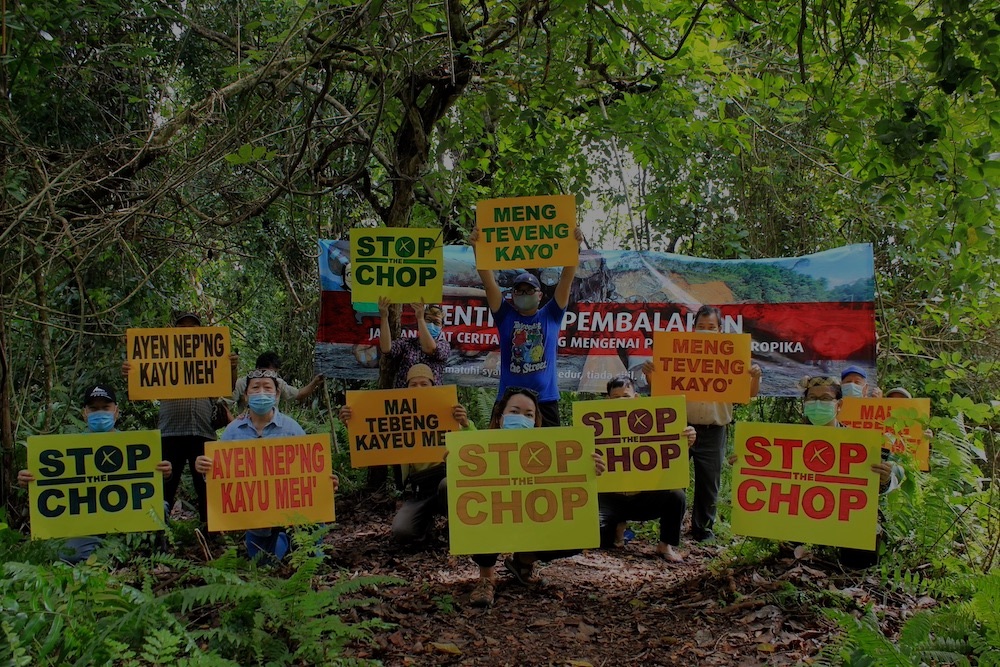
Indigenous communities have managed the forests and rivers of Borneo for countless generations, relying on the rich ecosystems for hunting, gathering, and farming. Unique agricultural practices have evolved to suit the many varying ecosystems of the island.
Most of the Indigenous communities of Sarawak do not have legal rights to the land that they depend on for their lives and livelihoods. This means that the government has the ability to lease community lands to timber or plantation companies. These companies often forcefully remove people from their own land. Companies use the land for profit, without sharing the benefits with local communities. For communities actively seeking legal land rights, the cost and time involved in the process is often a barrier that is impossible to overcome (for more information on this struggle, check out our documentary film on land rights, Rumah Nor.)
Indigenous customary land rights are protected under Malaysia’s federal constitution. In the case of Sarawak and Sabah however, the legal structure governing Indigenous peoples is largely under the authority of the state government. The Sarawak Land Code has a narrow definition of what can be considered native customary land and has strict area limits in place. This means that even successful community claims might only grant rights to a small fraction of what Indigenous communities consider to be their native customary land.
Under the United Nations Declaration on the Rights of Indigenous Peoples, which Malaysia has adopted, Indigenous communities are not to be forcibly removed from their lands (Article 10), and have the right to control the lands, territories and resources that they protect (Article 26). In reality, commercial interests have largely won out over community interests in the context of Sarawak and Sabah.
These problems are hardly unique to Borneo; they are part of a larger struggle for self-determination and human rights being fought by Indigenous people all over the world. Supporting communities in their fight to secure land rights and cultural self-determination is an integral part of our work at The Borneo Project.

